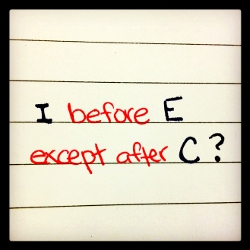Present, past or future?
How often do you...?
Adverbs is what you need to study for this section, among many other things.
Above you can read two essential questions for you to think about when you're doing some English Grammar.
Any questions about verbs tenses?
Please leave us a comment below.
For more practice on verb tenses, you could have a look at our Grammar links section on the right-hand side on this blog.
So, let's do some grammar!
Imperative, Present Simple & Continuous, Stative verbs
_______________________________________________________________________________
Present through Youtube
Past through Youtube
Future through Youtube
____________________________________________
Imperatives through Youtube
Present Perfect through Youtube
This a simple site for learners to practise English and enjoy language learning, using many different types of language resources. You’ll be exposed to many different accents of English, through listening, reading, speaking, writing and what’s even more important for your language learning, that is, Communication. This is not intended to be like a normal textbook, but a place to talk about your weaknesses and strengths, producing your English language every day.
Friday 10 November 2017
Monday 6 November 2017
Tuesday 26 September 2017
Friday 26 May 2017
English Spelling

- Can you spell your name, please?
- That's D A N I E L
- Ok, thank you very much.
 Spelling is an everyday language activity and it's even more common in English, simply because of the number of irregularities. That's why spelling contests are so typical in any English-speaking country.
Spelling is an everyday language activity and it's even more common in English, simply because of the number of irregularities. That's why spelling contests are so typical in any English-speaking country.Here're some notes about SPELLING for you to introduce this useful topic and learn a bit more about the crazy English Spelling.
Further practice about spelling:
Further practice about spelling:
- The English Alphabet. (videos)
- Phonemic Chart by the BBC.
- English Grammar in Use: Spelling theory.
- Advanced Listening about hyphens [.pdf, audio, transcript]
Monday 15 May 2017
Thursday 4 May 2017
Wednesday 3 May 2017
Wednesday 26 April 2017
Tuesday 25 April 2017
Sunday 16 April 2017
Tuesday 4 April 2017
Easter traditions around the World
Easter is a very important Christian festivity. People celebrate the resurrection of Jesus Christ on the third day after his death.
Easter is celebrated on the first Sunday after the full moon in March. This is between 22 March and 25 April.
The origin of the English word Easter is uncertain. It probably comes from the pagan goddess of spring, Eostre. The pagans celebrated the arrival of spring with special festivals.
Easter is celebrated on the first Sunday after the full moon in March. This is between 22 March and 25 April.
The origin of the English word Easter is uncertain. It probably comes from the pagan goddess of spring, Eostre. The pagans celebrated the arrival of spring with special festivals.
Thursday 23 March 2017
How to write a leaflet
Today, we've gone through some steps to design and write a tourist brochure and we've become aware of the fact that there are many decisions to be taken. This is not like following simple instructions of any activity from the textbook. On the contrary, firstly we need to think about a country and a city. Secondly, we have to decide the type of details and data to be used for our leaflet, whether we'd like to help tourists with some culture shocks as they arrive at our country or even, if we prefer to promote a certain city. In both cases, we have to describe and explain some cultural habits and customs. Thirdly, we need some useful words and expressions and common vocabulary about the same topic: Tourism. Finally, we could have a look at some real leaflets written in different languages, so that we can have a model to follow, though there's no other way for us to start writing in English, rather than our everyday writing practice.
For further information about writing skills, please have a look at these documents about writing techniques and examples.
For further information about writing skills, please have a look at these documents about writing techniques and examples.
As the English set-phrase goes: Practice makes perfect, let's now put our English into practice and take a butchers at our first writer, who decided to send us her leaflet about Burges. Thanks so much, María. I'm sure that we'll read your excellent leaflet before going to there. For more leaflets' samples, please click on here. Thank you very much indeed, dear writers. Well-done and well-written too for all of you.
Sunday 5 February 2017
Friday 3 February 2017
Tuesday 31 January 2017
What's your family like?
Are you a very family-oriented person? Or maybe not?
Here we're going to deal with the general topic of family. Let's talk about all the members of your family.
Still lost with vocabulary, try this basic vocabulary for ESO
Thursday 19 January 2017
Wednesday 18 January 2017
Subscribe to:
Posts (Atom)










